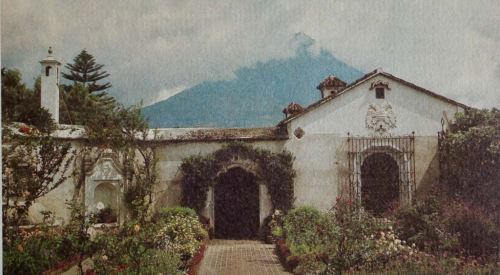The LAST 100: A Century of Tulane and Latin America
The Stone Center for Latin American Studies is pleased to announce the launch of the website The LAST 100 as part of celebrations honoring one hundred years of research and teaching in the field of Latin American Studies at Tulane University. The year 2024 marks the centenary of a gift enabling Tulane’s Department of Middle American Research to purchase the William Edward Gates library, a seed that led over time to the creation of the Middle American Research Institute, the Latin American Library, and the Center for Latin American Studies.
The LAST 100 is a multi-faceted digital humanities initiative reflecting on the university's longstanding commitment to understanding and engaging with Latin America. The project showcases the extensive history and contributions of Tulane's Latin Americanist community through dynamic, open-access resources, including The LAST 100: In Profile, The LAST 100: In Data, The LAST 100: In Stories, and a Digital Collection. Each component embraces a different storytelling approach to trace the Stone Center’s history and legacy and highlight the voices of faculty, students, alumni, and researchers.

The LAST 100: In Profile video collection offers an intimate glimpse into the human side of this history, enriching understanding of our institutional journey through the lens of individual narratives. Its short-form video portraits feature testimonies from the faculty, staff, and students who have shaped the legacy of Latin American Studies at Tulane and beyond. By highlighting these figures’ personal anecdotes and unique personalities, In Profile showcases the vibrant tapestry of experiences that defines the community of Latin Americanist scholars at Tulane. Find all profiles here.
Through multimedia narratives The LAST 100: In Stories illustrates the wide breadth of the Stone Center’s activities—from research to pedagogy to outreach to study abroad and beyond—and examines how the Center's activities have dialogued with larger trends in Latin American Studies. In Stories complements our extensive Digital Collection by contextualizing key documents and pairing them with oral histories from participants in key moments of our history. Read all stories here.
The LAST 100: In Data offers a curated collection of interactive and static visualizations revealing the Stone Center’s deep and varied connections with Latin America. These graphic representations highlight the diversity of faculty research areas, courses offered, student origin and engagement, and more. Click here to learn more.
The last feature of this project, Digital Collection, is a digital database of the most important documents related to the history of Latin American Studies at Tulane. It includes grant applications, correspondence, photographs, ephemera, administrative documents, and other records related to Latin Americanist programming, scholarship, and collaborations. This continually expanding resource is of great use for researchers working in the fields of Latin American Studies, Higher Education, and History. The collection is hosted in the Tulane University Libraries and can be accessed here.
SAVE THE DATE

The LAST100 – Celebrating Latin American Studies at Tulane
September 19-20, 2024
Tulane University, New Orleans
Please reserve the date to join us at Tulane for The LAST100 celebration, a series of in-person events that will explore the history of the Roger Thayer Stone Center for Latin American Studies and the faculty, students, and staff who have contributed to its rich legacy over the last one hundred years. The LAST 100 celebration will include exhibitions, panel discussions, and the unveiling of digital resources that document the contributions of Tulane’s Latin Americanists to the world— their publications, their teaching, their MA and PhD graduates, their leadership in area studies, and their service to the region.
